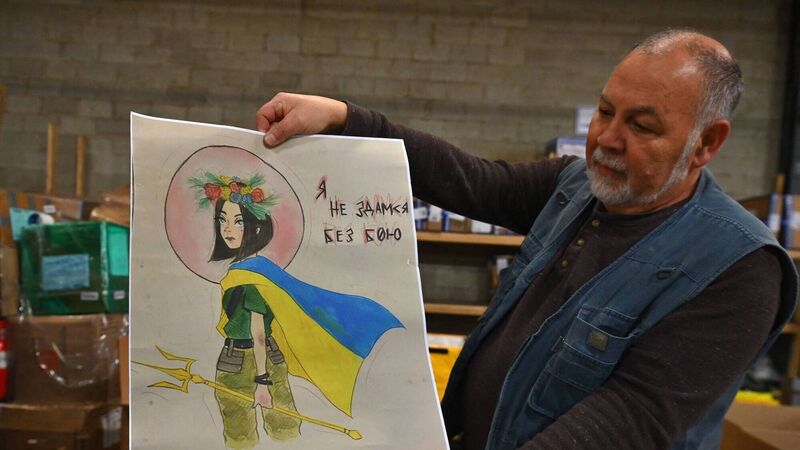Maeve Higgins: Denying human right of asylum bludgeons all our humanity

IT manager Alexander Kudin holds up a child’s painting that says: ‘I will not give up without fight’. It will be shipped with humanitarian aid donations to Ukraine. Picture: Angela Weiss/AFP
"I'm not asking for anything from the United States, just to be let in. All we need is to be safe. All we want is to keep our lives safe."
Those are the words of a 34-year-old Ukrainian mother of three children (ages 14, 12, and 6) after US border officials denied the family the opportunity to seek asylum here earlier this week.















